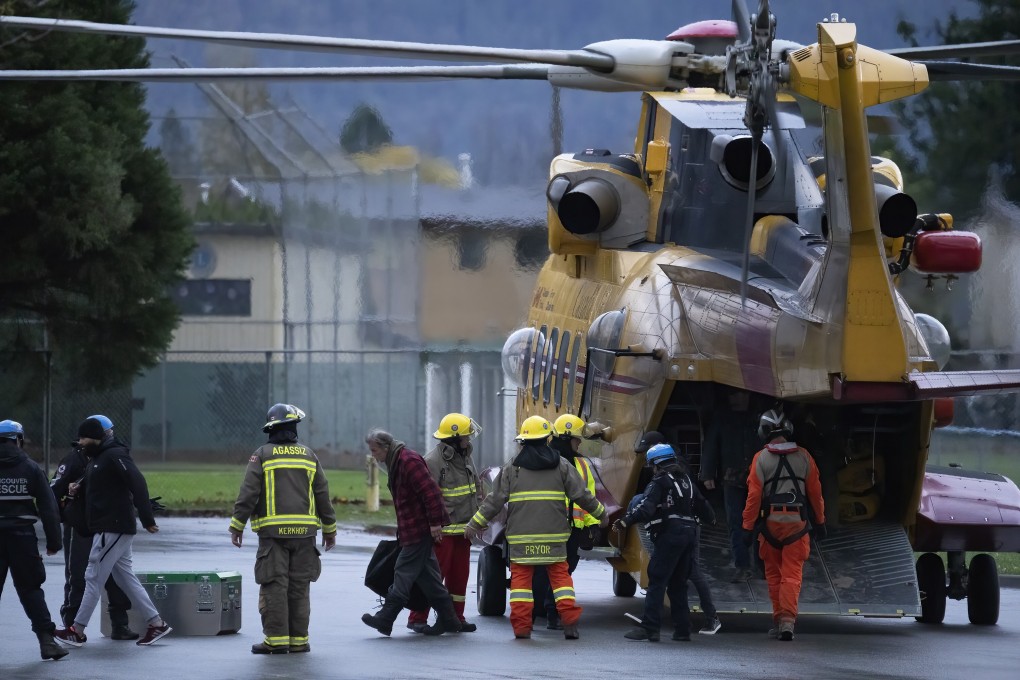Heavy rains force evacuations in Canada, mudslides trap motorists on highway
- Helicopters rescue dozens of travellers on Canada highway after mudslides trap them in cars
- Storm is the second weather-related calamity to hit British Columbia in just a few months

Relentless rain battered Canada’s Pacific coast on Monday, forcing a town’s evacuation and trapping motorists as mudslides, rocks and debris were washed across major highways.
Some 275 people, according to local media, were stuck overnight in their cars between two mudslides on Highway 7 near the town of Agassiz in British Columbia.
Since the morning, additional mudslides near Lillooet and Haig pinned down more travellers, the province’s public safety minister, Mike Farnworth, said.
Meanwhile, Merritt – about 300km (185 miles) from the coast – ordered the evacuation of all 7,000 of its townspeople after flooding compromised the local waste water treatment plant and washed out two bridges. Barricades also went up restricting access to the town.

Farnworth said search and rescue crews were dispatched to free people trapped for hours without food or water in 80 to 100 cars on Highway 7.